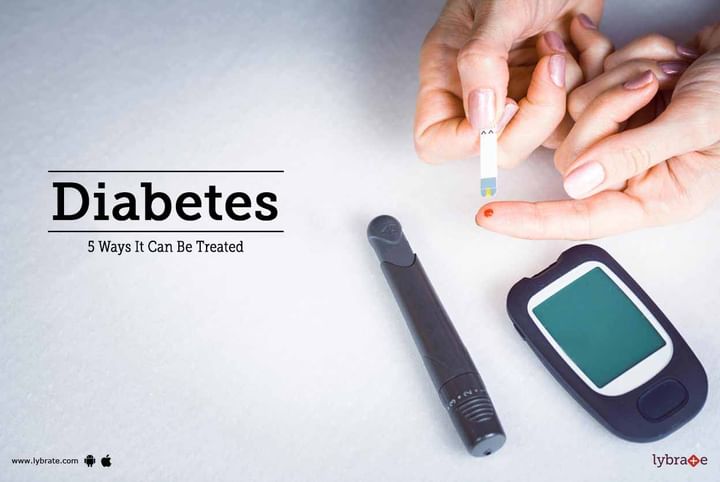Diabetes - 5 Ways It Can Be Treated
Diabetes or diabetes mellitus is a collection of disorders that affect the way blood sugar is used by your body. A healthy blood sugar level is very important as it provides energy for the necessary bodily functions. Diabetes results in increased glucose levels in the blood. Diabetes is classified into two types:
-
Type 1 Diabetes: In this type, the immune system of the body destroys cells that produce insulin, thus resulting in lesser insulin production.
-
Type 2 Diabetes: In Type 2 diabetes, the body is not able to use the insulin as a result of increased resistance to insulin and definite deficiency in insulin, thus resulting in high blood glucose levels.
Symptoms
The symptoms of diabetes are:
-
Rapid weight loss.
-
You may feel thirsty frequently.
-
Excessive and frequent bouts of hunger.
-
Presence of ketones (byproduct of muscle and fat breakdown) in the urine.
-
Vision problems.
-
Constant fatigue.
-
Sores take a longer time to heal.
-
You become vulnerable to various infections because of the weakening of the immune system.
Causes
The causes for Type 1 and Type 2 diabetes are different. In case of type 1 diabetes, the immune system of the body kills cells in the pancreas that produce insulin. This results in shortage of insulin in the body, resulting in high blood sugar levels.
In Type 2 Diabetes, the cells in the body turn resistant to insulin. The exact cause of this is not known, but genetic factors, being overweight, inactivite and other environmental factors can trigger this disorder.
Treatments
The treatment options for diabetes are:
-
Exercise: Exercise is an effective remedy to lower your blood sugar levels as it helps in transporting sugar into the cells for energy. You can include cardiovascular activities such as running and swimming in your workout regimen.
-
Insulin Therapy: Insulin therapy involves injecting insulin into the body to reduce blood sugar levels. It can be injected by using an insulin pen or an insulin pump.
-
Oral Medications: Oral medications may be prescribed to stimulate the pancreas to boost insulin production. Certain medications can also inhibit excess glucose release from the liver.
-
Pancreas Transplant: In some cases, pancreas transplant is advised to replace the faulty pancreas with a good one that produces insulin in sufficient quantity. Although, it's a rare possibility and does not correct already caused damage to eyes, kidney or nerves.
- Diet: Diet is another important aspect of the treatment plan that plays an important role in controlling diabetes. Avoid foods that contain simple sugars as they tend to raise your blood sugar levels. Rather, include complex carbohydrates in your diet such as beans, vegetables and whole grains. Special emphasis should be put on green vegetables. If you wish to discuss about any specific problem, you can consult an endocrinologist.



+1.svg)
